40. Iggy Pop - Post Pop Depression (2015)
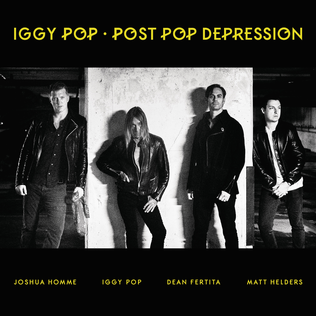
Perhaps it was Iggy’s friend and bête noire David Bowie who first convincingly demonstrated that a long musical life could feature something other than a sequence of diminishing returns.
It was therefore all the more heartwarming that, with David Jones having recently departed the planet, James Newell Osterberg delivered a near-masterpiece that ranked as his best work in decades, evoking the glory days of Detroit and Berlin, without being in thrall to either.
Post Pop Depression was largely touted as the brainchild of Josh Homme, and the QOTSA founder indeed deserved credit for a production that was by turns gonzo and subtle, yet remained consistently intriguing. But Homme was only one part of the equation. Iggy’s singing was pretty much stunning throughout, while Dean Fertita – who worked with Brendan Benson, The Raconteurs and the Dead Weather, as well as QOTSA – and Arctic Monkeys drummer Matt Helders were more than mere makeweights, for their songs made up the throbbing rebel heart of this collection.
Ultimately, this was a quintessential Iggy album, and the genius of the supporting cast was their understanding of the blend of intelligence and malevolence that underpins his best work. It was an intention that was signalled from the first song: ‘I’m going to break into your heart, gonna crawl under your skin.’ You could say its megalomania and vaguely modal guitar riffs tap into I Wanna Be Your Dog, but in truth, with this song as with others, it was the sense of invention and excitement that evoked earlier Iggy classics. As the songs rolled on, the joy of discovery barely diminished.
It took only one or two listens to demonstrate that Homme is one of Iggy’s great collaborators. Like the Stooges or Bowie, he intuitively avoided the standard blues-rock form in favour of something more stripped-down and elemental, and while the songs came from various combinations of the four principals, they all locked into the same ethos.
For all the musicianship, this album never fell into the trap of sounding simply clever – it reached deep into Iggy’s DNA. For instance, album closer Paraguay evokes Pop’s Bowie-written synth-pop classic Hideaway, and begins with an a cappella opening that comes straight from the Mississippi hill country – home of Iggy influence and support act Junior Kimbrough. You don’t have to know the history to hear that this sounds somehow right, though.
Iggy Pop once expressed his worries about the albums he was adding to his pile of work in his later years, lest they somehow chip away from the legend. This album was a vindication of the instinct that less is more. It was a magnificent testament to a man who has been scarred and damaged by his journey, but whose lust for life remains gloriously intact.
Our score: 9/10
39. Radiohead - The King Of Limbs (2011)
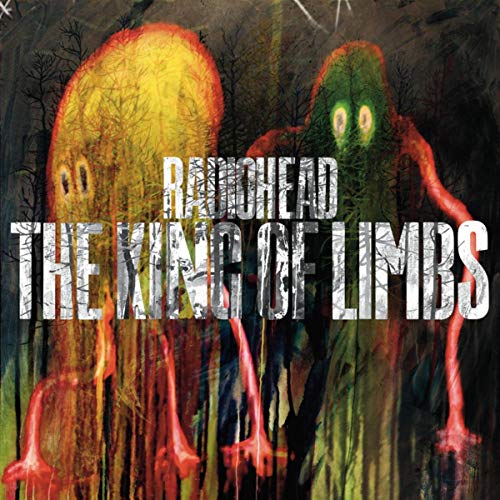
Released online in February 2011 with minimal advance warning, Radiohead’s stealth sequel to 2007’s pay-what-you-like smash In Rainbows might have lacked the same headline-grabbing impact, either as music or as marketing stunt, but saw the band continue their commendably forward-thinking exploration of rock’s digitally deconstructed electro-jazz fringes.
For sheer beauty, nothing was quite as sublime as Nude or House of Cards from In Rainbows, although the weightless dronescape of Bloom and the glitchy, twitchy avant-muzak of Feral certainly came close. The woozy, soulful Lotus Flower may have been a wry homage to Yorke’s friend and collaborator Flying Lotus, the LA-based trip-hop alchemist with a similar penchant for sci-fi lullabies and mind-expanding beats.
But the best tracks here were in fact two fairly traditional ballads: the mournful, Neil Young-tinged piano lament Codex and the languid, skeletal strummer Give Up The Ghost. Both gained in stature from repeat listens, much like the rest of the album.
At the time, this eight-track affair was touted by music critics as a minor Radiohead release – and one that fell short of the stratospherically high standards they set themselves on previous landmarks. However, its impact with fans was significantly more positive, and it has since been accepted as an essential part of Radiohead canon.
Our score: 6/10
38. Anathema - The Optimist (2017)
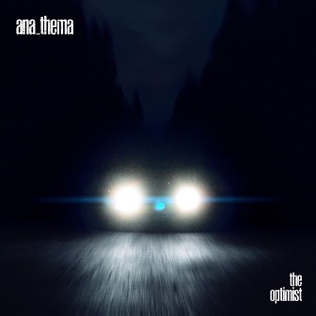
A thematic sequel to 2001’s A Fine Day To Exit, Anathema’s 11th studio album was every bit as beautiful and absorbing as fans had become accustomed to.
Less experimental than 2014’s fractious and melancholy Distant Satellites, The Optimist showcased the blissful chemistry that existed within this particular line-up. There were still plenty of looped electronics and skittering beats lurking amid the sumptuous wash of multitracked guitars on the likes of Endless Ways and San Francisco, but there was also an urgency that highlighted what a great, straightforward rock band Anathema had become over their 27 years.
Songs like opener Leaving It Behind and the fragile, forlorn Springfield were simply further examples of the Liverpudlians’ unerring ability to make grown men cry, those now trademark vast crescendos and moments of spectral calm still hitting the target with masterful precision.
As with most of Anathema’s records, this was one that fans of Elbow and Radiohead would love every bit as much as fans of Opeth or Marillion. Back when it was first released, we though the trick would be to get people to listen to the fucking thing – turns out we were wrong, as its healthy ranking here adeptly proves.
Our score: 8/10
37. Nick Cave And The Bad Seeds – Skeleton Tree (2016)
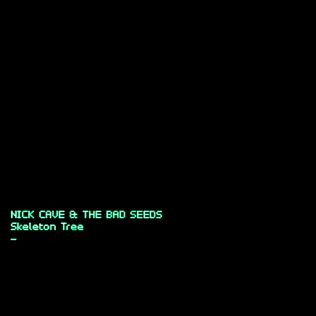
When real, life-changing tragedy strikes a master of dark musical arts, masterpieces can be made: Lou Reed and John Cale’s Songs For Drella. Bowie’s Blackstar. Sufjan Stevens’s Carrie & Lowell. The Bad Seeds’ sixteenth album, Skeleton Tree.
Released the day after Nick Cave’s documentary One More Time With Feeling, which skirted around the death of his 15-year-old son Arthur in 2015 until its heart-rending closing reel, the album tackled Cave’s torment head-on.
‘You fell from the sky and crash-landed in a field near the river Ovingdean,’ he intoned in the first line of ominous opener Jesus Alone. And then, to try to make sense of such senseless loss, he widens his frame to take in ‘a drug addict… in a Tijuana hotel room’, ‘an African doctor harvesting tear ducts’ and other disparate characters, his son becoming part of a cosmic human whole.
Although recording began in 2014, the glowering semi-electronic atmospheres of Skeleton Tree were understandably haunted by tragedy. Over sombre, unsettling experimental soundscapes akin to a mortuary Radiohead, Cave reeled through sprawling stream-of-consciousness imagery on the glitch gospels Rings Of Saturn and Anthrocene as though trying to babble away his grief.
When his speaking-in-tongues quasi-melodies lit upon a line of pained clarity – ‘I knew the world it would stop spinning now, since you’ve been gone,’ he croaks on the fragile Girl In Amber – it hit like a claw hammer.
But by Distant Sky and the final title track the album cohered into conventional Cave hymnals; his dazed, bewildered sadness patched back into more familiar shapes. Hints of catharsis from these tangled, bony branches.
2019's Ghosteen saw that exploration of grief and catharsis taken further still. A companion piece to Skeleton Key in the sense that it was cast in the shadow of a grief that will never go away – but that grief now being dealt with in the best way Cave knows: the most beautiful songs of an already masterful career.
Our score: 9/10
36. Pearl Jam - Lightning Bolt (2013)
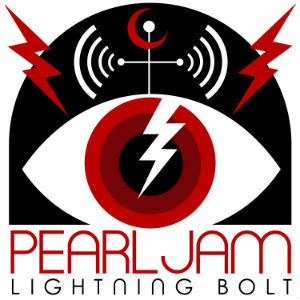
This album landed just over a decade since Pearl Jam re-engaged with the world. As their Seattle peers crashed and burned in the 90s, Eddie Vedder had held his band back from the fray, letting the scalding heat stoked by their first three albums cool and creating some space around his stardom-battered psyche so he could survive.
Riot Act (2002), an incendiary record fuelled by 9/11, George W. Bush and Seattle’s violently crushed anti-capitalism protests, was the signal they wanted at least some of their turf back: grunge no more, but a socially committed, telepathically tight classic rock band in the tradition of Vedder’s heroes The Who.
Lightning Bolt was the fourth album in the second act of Pearl Jam’s career, and it had no shocking surprises in store. But long-time producer Brendan O’Brien made sure it hit clean and hard, while leaving room for the rugged ballads that suit Vedder so well. Lyrically, it was heavily influenced by the singer’s 2010 marriage and two daughters, pondering middle-aged worries of mortality, married love and what parents leave behind for their kids.
This was music by the grunge band that lived to grow up.
Lightning Bolt roared out of the traps with Getaway and first single Mind Your Manners; Matt Cameron’s pummelling drum groove rarely relenting and guitar solos revving as Vedder railed against religious fundamentalists, the only clear target he could find in the age of Obama. Gosh, it seems like a long time ago, doesn't it?
The second half felt more intimate, starting with the manic depression of Pendulum and ending with Future Days’ realisation, to the sound of a rickety piano, that in the stable sanctuary of married life, ‘All my stolen, missing parts / I’ve no need for anymore.’
In retrospect, Lightning Bolt could perhaps have with a bit more of a hot-wired sound. But at the time, its brutally hard-won optimism was satisfying enough.
Our score: 7/10
35. Faith No More - Sol Invictus (2015)
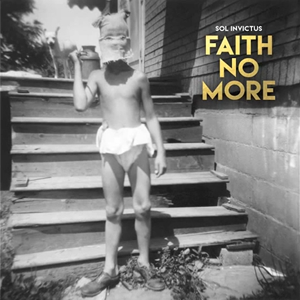
It has been both amusing and embarrassing to observe entitled music fans stridently declaring what reformed ‘heritage’ rock bands should or should not be permitted to do with their own careers over the course of this decade – as if they, and not the musicians themselves, are the only true, trust-worthy custodians of these iconic brands.
However, save for the inevitable try-hards crowing ‘No Jim Martin, No Faith No More’ – or indeed ‘No Chuck Mosley, No Faith No More’ – the revelation that the reunited Faith No More were working upon their first studio album in 18 years didn’t generate the same sort of anguished indignation which accompanied, for instance, the news of a new Pixies record, or the idea that Refused might have had the temerity to attempt to follow up The Shape Of Punk To Come. It might just be that FNM had earned that most valuable and rare commodity – trust – or simply that the quintet’s patient, slow-burning resurrection had been conducted without any recourse to self-aggrandising or hype.
Perhaps the most instantly notable aspect of Sol Invictus was just how seamlessly the album followed on from its predecessor, 1997’s cockily-titled Album Of The Year. Recorded at a time when more than one member of the band seemed more interested in individual side projects than the collective whole, Album Of The Year assimilated FNM’s disparate influences – post-punk, metal, electronica, grindcore, soul, whatever - into arguably the most tightly-bound body of work in their canon
Impressively, given how long these five musicians had been uncoupled, Sol Invictus went further, to even more potent, startling effect. While deep immersion in the album’s 10 tracks allowed the isolation of numerous wonderful individual ‘moments’ – the sweet melodica swells in Rise Of The Fall, Roddy Bottum’s earworm cyclical keyboard riff in Superhero, the utter contempt heard in Mike Patton’s voice on Black Friday – the overwhelming first impression was just how brilliantly Faith No More’s component parts interlocked and engaged. That these long-estranged collaborators could achieve such cohesion and momentum without dependence on nostalgia or familiar tropes was laudable, and at various points, utterly remarkable.
This most impressive of comebacks ended in typically assured fashion, with From The Dead, a shimmering, summery meld of acoustic guitars, beatific stacked choral vocals, martial beats, Theremin wibbles and chiming bells, all of which made a mockery of Faith No More’s perceived status as an ‘alt- metal’ band. 'Welcome home my friend,' Patton sang at its climax, an apposite end to a 40-minute set which only served to underline and emphasise the quintet’s reputation as one of the most dazzlingly distinctive, inventive and sui generis rock bands of all time.
Our score: 9/10
34. Foo Fighters - Concrete And Gold (2017)
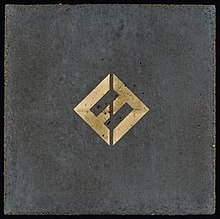
At the end of the sonic highway, David Eric Grohl found that the rock’n’roll spirit he spent a whole decade chasing was an era, not a place. After the Foo Fighters recorded 2011’s Wasting Light in his garage to invoke the ghost of his spotty punk teens, they set out across America making 2014’s Sonic Highways in some of the most storied and historic studios in the country, hoping rock magic was to be found clogging up Nashville microphones or ingrained into the antique mixing desk dials of Chicago, Seattle or NYC.
Rock’n’roll wasn’t a tourist destination, it was the records that made you. It was Sgt Pepper and the White Album, The Dark Side Of The Moon and Paranoid; it was Led Zeppelin IV, Raw Power, Ace Of Spades and High Voltage. It was, by and large, the dark and magical festering pot of 1967-73, and for the Foos’ ninth album it would be here that Grohl and co would mine sonic concrete and melodic gold.
Bizarrely bringing in Adele and Sia producer Greg Kurstin (of indie poppers The Bird And The Bee), the mission statement for Concrete And Gold was “where hard rock extremes and pop sensibilities collide [like] Motörhead’s version of Sgt Pepper”. The finished product was actually more like AC/DC having a crack at making their White Album, in that it was as varied, expansive and crammed with drug-crusted invention as a band embedded in blues and hard rock could get.
For a record relatively light on pop-rock stadium slayers, it was also easily the Foos’ most elemental album yet.
Its trick was to frack the grungier seam of that fervid age of hard rock invention; the records straddling the turn of the 70s that drove a pickaxe of drugs and feedback into the brain of flower power and sounded like they were made by people who’d worked out that the devil had all the best heroin.
Elsewhere, Concrete And Gold played somewhat sillier – and more manipulative – buggers with its source material. Opener T-Shirt found Grohl mimicking a gentle 60s Motown singer for the first 30 seconds, before 1973 Aerosmith invaded the booth and ‘space harmonised’ the tune into the power ballad ether. What if Black Sabbath had ditched The Wizard and gotten heavily into Wizzard? That’ll be La Dee Da, a devil’s boogie.
A true product of its time, the album was themed around the “hope and desperation” of America’s recent political calamity. “You get what you deserve,” he told his fellow Americans on T-Shirt, even going on to sketch a typical Trump supporter driven into the arms of jingoism by hardship and fear on the pounding Arrows. Elsewhere the album traced Trump’s trajectory to all sorts of terrifying potential conclusions, taking in environmental dangers (The Sky Is A Neighbourhood, Dirty Water), poverty (Make It Right) and rising international conflict (La Dee Da).
Grohl does emerge from the modern age with some glimmer of optimism and defiance, though. If Dave Grohl is an enduring icon of rocking through the hard times, we still need him – and Concrete And Gold – now more than ever.
Our score: 8/10
33. The Wildhearts - Renaissance Men (2019)
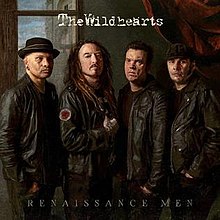
Although touted as featuring the ‘classic’ line-up of Ginger, CJ, Ritch Battersby and Danny McCormack, these four made only one album together – the original Fishing For Luckies in 1994. They tried again later that year, but CJ was gone after the initial sessions for what became p.h.u.q.
CJ and Ginger smoothed things over in 2001, and Ritch has been back on the drum stool since 2005. So presumably it was the return of bassist Danny – on stage for the Britrock Must Be Destroyed dates a year prior even though recovering from the amputation of part of his right leg – that was the catalyst which brought this turbulent band full circle to how they sounded when he first joined in 1991.
Ginger reckoned that previous album ¡Chutzpah! (2009, with Scott Sorry on bass) was poorly received, but that this one deserved a Champagne reception. Whereas ¡Chutzpah! was lyrically brighter and musically drifted into power-pop at times, Renaissance Men got darker and heavier again. It wasn’t gloomy, though.
Far from it. The title track was joyous and triumphant: ‘Back in your face again, we’re the Renaissance Men... ARRIBA!/You need us around, you can’t keep a good band down…’ – plus a series of canny rhymes, including probably the first ever chorus to pair ‘DC-10’ with ‘men’.
Not just that song, but the whole album took you back to the feeling you had the first time you heard Turning American; that impossible Beatles/Metallica, angry/funny nexus. It was the Wildhearts remembering what they do best – and just going for it.
It started at full tilt with Dislocated – which in places sounded like Motörhead, until a prime-cut Ginger bridge gave it all away – then it crashed, via a howl of feedback, into Let ’Em Go in which a gang chorus sang about rivers of shit. Fine Art Of Deception celebrated lack of commitment with sinister yet customary honesty: ‘Don’t let my proximity mean what it may imply/I’m just working on a way to say goodbye.’
The centre-piece of the album was Diagnosis. The best and longest of the 10 tracks, it built slowly into a rant about mental health professionals and how they let people down. Ginger launched another brutal attack, this time on the pharmaceutical industry, in Emergency (Fentanyl Babylon), but he was funnier when referencing drugs in My Kinda Movie and closer Pilo Erection.
So, was it as good as Earth Vs The Wildhearts? No. On a par with Fishing For Luckies and p.h.u.q.? Close – and easily the best thing since.
Our score: 9/10
32. Clutch - Earth Rocker (2013)
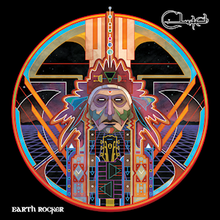
There must have been something in the Maryland water this decade. Here, ten albums into a colourful career, Clutch showed no sign of easing up. If anything, Earth Rocker found the grizzly quartet more fierce and ferocious than ever, as they delivered a manifesto that practically demanded for rock to return to a back-to-basics approach.
Within the opening minute of the title track, frontman Neil Fallon was sermonising that ‘If you’re going to do it, do it live on the stage/Or don’t do it at all’ – a line that spoke volumes about their whole career philosophy. Fallon remains is a fine lyricist whose vocal delivery is best described as chest-beating and pulpit-thumping.
Of course, all this could have been seen as empty rhetoric were the band behind him not so gloriously heavy and therefore clearly leading by example. The harmonica-laden boogie metal of DC Sound Attack, for example, had such pendulous swinging balls it couldn’t walk straight, while Unto The Breach was a war cry of pure rock intent.
What set Clutch apart from their contemporaries is that they played as if possessed with a biblical fervour. Fire and brimstone was their continued currency, and guitarist Tim Sult tore it up so hard that Mr Freedom devastated like hot magma bubbling and dripping from your speakers. Meanwhile, down in the basement, drummer Jean Paul Gaster could be found propelling the beat with a wrist-snapping, hip-hop-style intensity.
Where other bands are content just to make a noise, here Clutch found a groove and locked into it for an entire album. The only real change of pace and mood here was on Gone Cold, a sultry murder balled that squinted back down the highway at the trail of blood and corpses it had clearly left in its wake.
Ultimately Earth Rocker was the sound of a band revelling in their self-created niche like happy hogs in shit. ‘Everybody keeps telling me, Neil, you’ve got to quit your low-down ways,’ Fallon bellowed on Crucial Velocity, but on the strength of this album, we’d be inclined to encourage the man to back-slide into sin as much as he wants.
Our score: 8/10
31. Rival Sons - Great Western Valkyrie (2014)
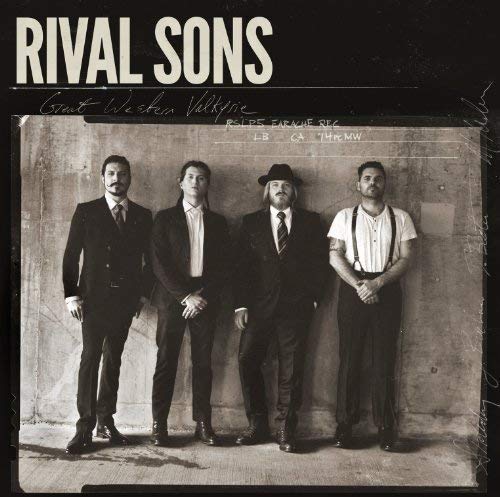
Since turning heads with their major label breakthrough Pressure & Time in 2011, Rival Sons have garnered a reputation as a thrilling rock‘n’roll outfit with a fearsome live reputation to boot.
Months spent in the studio poring over elaborately slick production have never been for them. Instead, each of their releases has been recorded in intensely tight time, resulting in records that crackle with conviction and urgency.
With their fourth full-length album Great Western Valkyrie, the band – including the then-recently appointed bassist Dave Beste – further expanded their sound with some of their most assured material yet. Opening track Electric Man was a boisterous slice of blues-rock, primarily driven by fuzz-drenched guitar and Jay Buchanan’s strident vocals. Newly prevalent keyboards lent a distinctly 60s flavour to the record, Good Luck recalling The Animals in their prime, while Good Things could almost have been a distant relative of California Dreamin’.
With a range of influences evident across the album’s 10 tracks, the first single Open My Eyes was unequivocally the centrepiece. Boasting a melody that sounded simultaneously fresh and like it had been in the pantheon of classic rock forever, it dripped with soul and should still be blared out of any right-thinking person’s car window.
There was something of a cinematic sweep across later tracks, The Rich And The Poor and Belle Starr nodding toward Ennio Morricone and evoking the sprawling landscapes of the Old West. This was the sound of a band on top of their game.
Our score: 8/10
